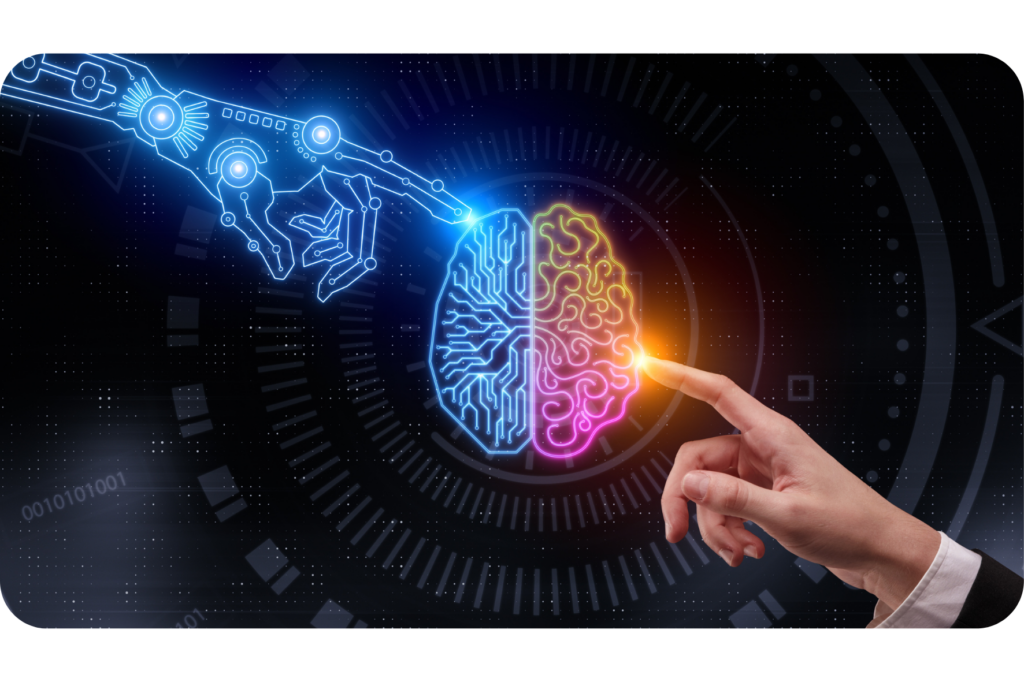Artificial intelligence (AI) language technologies have become an essential part of our daily communication.
Advanced chatbots that can seamlessly handle customer inquiries, translation services that effectively bridge language barriers, and dynamic content creation tools that make information delivery smoother are some examples of AI-powered communication technologies that are revolutionizing the way we connect and interact with each other.
The transformative power of AI is profound as it promises to enhance communication efficiency and break down longstanding barriers between different linguistic and cultural groups.
However, the adoption of AI-driven communication tools also brings significant ethical considerations such as data privacy, algorithmic bias, and the impact on employment across various sectors, which require immediate attention to ensure these innovations benefit all of society equitably.
In this article, we address the capabilities and challenges of AI in communication, advocating for a development path that prioritizes responsible use while harnessing its potential to revolutionize how we interact in the digital age.
The Power of AI Language

AI language technologies enhance communication efficiency by integrating seamlessly into digital platforms, including mobile app and software development services. For instance, advanced AI-driven translation tools embedded within mobile applications empower you to navigate foreign languages effortlessly in real time.
A travel app, for example, can use these technologies to translate menus, signs, and dialogues, improving the travel experience by making local interactions and navigation intuitive for travelers.
Additionally, AI-powered chatbots are revolutionizing customer service within apps across various industries, such as retail or finance. These bots are capable of processing returns or providing stock investment advice directly from a smartphone, offering real-time assistance to users.
In software development, AI facilitates efficient communication by automatically generating documentation or summarizing code updates and changes. This is especially useful in mobile app development environments, where keeping track of project progress is crucial.
AI has revolutionized the way businesses communicate with their customers through mobile apps and software services.
By analyzing user data collected from apps, AI can deliver personalized marketing notifications at the most appropriate times. For instance, a fitness app may send motivational messages to users during their workout or suggest customized workout plans based on their past activities.
Through these innovations, AI language technologies improve communication efficiency and improve personalized user experiences across a broad spectrum of digital services and platforms.
Ethical Concerns of AI Language
A significant issue in AI language technologies is the potential for bias and discrimination, which can be exacerbated when these technologies are applied to fields like web development and AI software development services.
To give you an example, AI-driven algorithms used in website personalization might display content based on discriminatory data points, reinforcing stereotypes. Similarly, big data analytics services, when combined with AI, can analyze vast amounts of user interaction data to detect patterns.
If this data includes biased human decisions, the AI’s conclusions can further propagate these biases across wide user bases, affecting everything.
AI language technologies, particularly when integrated with sectors like blockchain development services, pose concerns regarding job displacement. For instance, as AI advances in automating complex blockchain transitions and smart contract operations, it reduces the need for human oversight, leading to job losses in those areas.
Similarly, AI software development services that automate coding and testing processes decrease the demand for software development and testers, impacting employment in the tech industry.
Privacy and security are paramount concerns in the deployment of AI language technologies. For example, big data services that use AI to process personal data for behavioral analytics must ensure stringent security measures to prevent data breaches.
Likewise, blockchain services employing AI to handle sensitive transaction data must safeguard against cyberattacks that can compromise blockchain integrity. In both cases, the immense volumes of data involved increase the risk of substantial privacy violations if the data is mishandled or accessed maliciously.
Addressing ethical issues requires a special approach involving:
- Rigorous QA testing
- Transparent practices
- Ethical guidelines to govern AI applications
By managing these concerns, stakeholders can capitalize on AI’s benefits in various sectors while minimizing its potential harm.
Striking a Balance: Responsible AI Language Development

Mitigating bias in AI language technologies is crucial to ensure they serve all segments of society fairly. Developers can address bias by diversifying the datasets used for training AI models, ensuring they represent demographics, languages, and cultures.
Additionally, implementing regular audits and employing bias detection algorithms can help identify and correct biases before they affect the system’s outputs. For instance, in AI-driven content creation tools, ensuring the training data encompasses a variety of writing styles and perspectives can prevent the dominance of any single cultural viewpoint.
Encouraging human-AI collaboration is also critical to maximize the benefits of AI while minimizing its risks. By designing systems that require human oversight, developers can leverage the strengths of AI and human capabilities.
In customer service applications, AI can handle routine inquiries while escalating complex or sensitive issues to human operators. This not only ensures efficiency but also maintains a human touch in critical interactions, fostering better customer relationships and learning opportunities for the AI system.
Developing and adhering to robust ethical guidelines and regulations is essential to guide the development and deployment of AI technologies. These guidelines should address concerns such as:
- Transparency
- Accountability
- Privacy
- Fairness
Regulatory frameworks can also play a key role in setting standards for data usage, AI training practices, and the deployment of AI systems. Sectors like healthcare or finance, where AI’s potential to impact human lives is significant, may require stricter regulations to ensure AI systems operate within ethical bounds and deliver safe outputs.
Stakeholders should focus on certain key areas to ensure that AI language technology is developed and used responsibly.
It’s important to maintain a balance between innovation and ethical considerations, not only to preserve public trust but also to create a technological landscape where AI can contribute positively to society’s progress.
Revolutionize Your Company with an Ethical Use of AI
AI language technologies offer you the potential to revolutionize communication, making it more efficient and inclusive by bridging linguistic and cultural divides. From enhancing user experiences with personalized interactions to breaking new ground in global connectivity, AI has proven its worth as a transformative force.
However, the rise of AI technologies also brings light to ethical concerns. Issues such as data privacy, algorithmic bias, and the potential for job displacement present significant challenges that require thoughtful consideration and action.
At Vanguard-X, we’re committed to navigating these complexities by promoting the responsible use of AI that benefits society while guaranteeing individual rights and dignity. Contact us or follow us on LinkedIn to stay updated with the latest trends and discussions on AI and IT staff augmentation services for your company.
FAQ
How is AI language changing communication?
AI language technologies are transforming communication by enhancing efficiency, enabling real-time translation, and facilitating more personalized interactions.
These advancements allow for seamless communication across different languages and cultures, streamline customer service through intelligent chatbots, and create more engaging and tailored content automatically.
As a result, AI is breaking down traditional barriers in communication and opening up new possibilities for global connectivity.
Can AI language personalize communication?
Yes, AI language can significantly personalize communication. Through machine learning and data analysis, AI can understand individual preferences, learning styles, and interaction patterns.
This capability allows AI-driven systems, like chatbots and digital assistants, to tailor their responses and recommendations to individual needs, making interactions more relevant and engaging. For example, AI can suggest personalized content, offer tailored shopping experiences, and adapt educational materials to suit different learning paces.
What are the ethical concerns surrounding AI language?
Ethical concerns surrounding AI language include issues of privacy, bias, security, and the impact on employment. There is a risk that AI could perpetuate existing biases present in the data it learns from, leading to discriminatory practices.
Privacy concerns arise as these technologies often require processing large amounts of personal data, potentially leading to breaches. Additionally, the automation capabilities of AI could displace jobs, particularly in sectors like customer service and content creation.
How can we ensure responsible AI language development?
Ensuring responsible AI language development involves several key practices:
- Bias mitigation: Implementing techniques to detect and mitigate bias in AI systems, such as using diverse datasets and conducting regular audits.
- Ethical guidelines: Developing and adhering to ethical guidelines that address privacy, transparency, accountability, and fairness.
- Regulation and oversight: Establishing robust regulatory frameworks to govern the development and deployment of AI technologies.
- Human oversight: Encouraging human-AI collaboration to leverage the strengths of both and ensure AI systems are used ethically and effectively.
Is AI language the future of communication?
AI language is likely a significant part of the future of communication. Its ability to improve communication efficiency, overcome language barriers, and provide personalized experiences makes it an invaluable tool in an increasingly interconnected world.
While it will not replace human communication, AI will enhance and augment the way we interact, making it an integral component of future communication technologies.











